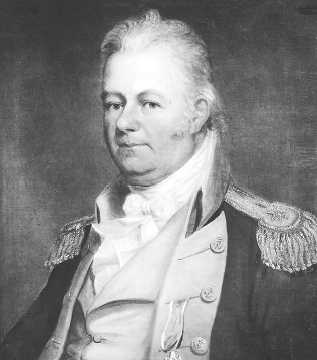| |
134.6
Figure 2-4.-“Take care of your men.” Captain
Truxtun insisted on justice and
consideration for enlisted men.
the mainmast was tottering and that he should
come down before he was killed, Jarvis replied, “If
the mast goes, we go with it. Our post is here.”
The next roll of the ship sent the mast crashing
and splintering over the side, throwing Jarvis far
out into the black water to his death. In tribute to
this boy’s courage and discipline, Congress passed
the following resolution: “The conduct of James
Jarvis, a midshipman of the Constellation, who
gloriously preferred certain death to the
abandoning of his post, deserves the highest
praise; and the loss of so promising an officer is a
subject of national regret.”
Good leadership produces good followership.
The leadership Truxtun displayed through con-
cern for his men in turn produced good follower-
ship in those under his command.
WAR WITH TRIPOLI
The terms of a treaty with Tripoli required the
United States to pay small tributes to that
country. Dissatisfied with the amount of tribute
paid and lured by the unprotected American
commerce, the Bashaw of Tripoli declared war on
the United States in 1801.
In answer to this challenge, Commodore
Edward Preble, in his flagship, the Constitution,
was sent to the Mediterranean in command of a
squadron. One of the men under his command was
a young lieutenant named Stephen Decatur who,
inspired by Preble, helped to establish a different
type of naval tradition.
STEPHEN DECATUR
During the United States’ war with the pirates
in the Mediterranean, a dramatic incident in-
fluenced the molding of our Navy traditions. The
frigate Philadelphia had fallen into the hands of
Tripolitans and become an important addition to
their harbor defenses. A young lieutenant named
Stephen Decatur, who was under the command of
Commodore Preble, volunteered to destroy this
captive frigate. The Philadelphia had been built in
Decatur’s
home
city
and
was
originally
commanded by his father.
Decatur, with 74 comrades, including Charles
Morris, James Lawrence, and Thomas Mac-
Donough, sneaked into the harbor at night in a
small ketch. They were guided by Salvadore
Catalano, a Sicilian pilot who knew the harbor of
Tripoli and could speak Arabic. Within minutes
they captured the ship, the foe having been cut
down or driven into the sea. Combustibles were
passed aboard, and soon the ship was burning
fiercely. Several minutes later the boarders, with
only one man wounded, were back in their ketch.
Under fire from shore batteries, they left the
illuminated harbor. Three of today’s modern
warships honor these makers of naval tradition by
carrying the names USS Morris, Lawrence, and
MacDonough.
Perhaps no act in the first half of the 19th
century thrilled Americans more than the destruc-
tion of the Philadelphia. That spectacular feat
made Decatur the most striking figure of the time
and prompted Lord Nelson to call it “the most
daring act of the age.” Spectacular exploits were
commonplace in Decatur’s career, but they were
not the feats of a reckless warrior. He was a
thoughtful strategist and an expert tactician. He
was, as well, an adept diplomat and a skilled
administrator. Like Paul Jones (who could turn an
excellent phrase) and Truxtun (who wrote a book
on navigation), Decatur was not one-sided.
Versatility, too, is a Navy tradition.
2-7
|

